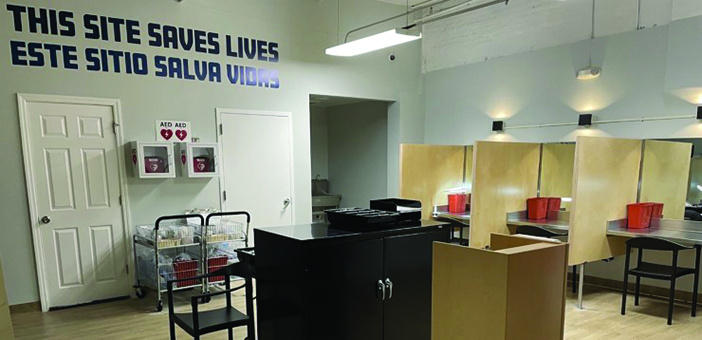Brown researcher studied the community impacts of the first US two government-sanctioned overdose prevention centers.
Overdose prevention centers, where individuals can consume illicit drugs under the observation of trained staff, are not associated with significant increases in crime, researchers found.
When the researchers compared syringe service programs in New York City with two programs that were recently sanctioned by city officials to offer supervised drug consumption, they found no significant increases in crimes recorded by the police or calls for emergency service in the surrounding neighborhoods.
The findings, which were published in JAMA Network Open, come as plans to open overdose prevention centers proceed in Rhode Island, Massachusetts, and elsewhere, and not long after lawmakers in Philadelphia passed a preemptive measure to ban these types of centers, noted study co-author Brandon del Pozo, PhD, an assistant professor of medicine (research).
“What this data shows is that if a neighborhood benefits from an established syringe service program, then adding the service of supervised drug consumption is not likely to increase reported crime, disorder complaints, or related calls to 311 and 911,” del Pozo says.
Even in New York, del Pozo adds, the federal prosecutor for Manhattan characterized the city’s OPCs as unlawful and threatened to close them.
Yet, according to the study, del Pozo says, concerns about OPC-caused crime and disorder are unfounded.
“To those who worry that opening overdose prevention centers will increase crime in neighborhoods that need these types of programs, I would say that our analysis does not bear that out,” del Pozo says.




